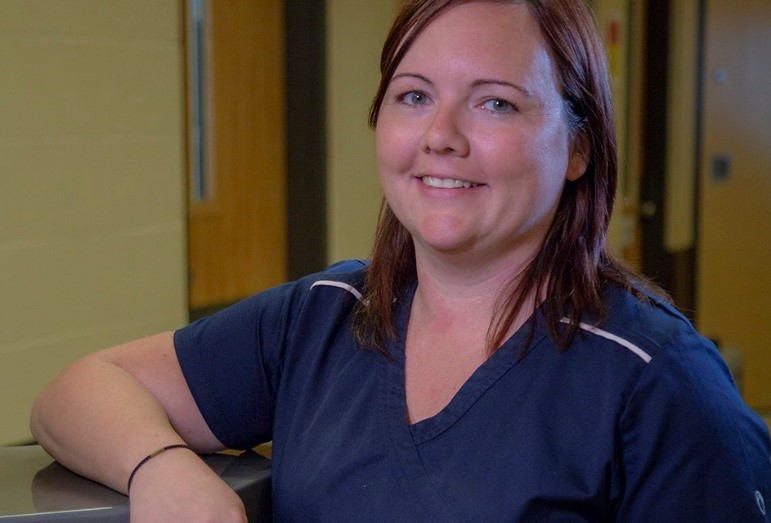One study here in B.C. is looking to determine how many people in provincial correctional facilities have been exposed to COVID-19, in order to get a more accurate picture of where the virus has been.
Up until the summer of 2020, COVID-19 tests were, for the most part, only administered to people who were exposed to the virus or were at risk of severe illness. Those presenting only with mild COVID-19 symptoms were not able to be tested until later in 2020. Experts now believe that since the beginning of the pandemic, many people may have had COVID-19 without being aware of it, particularly if they were asymptomatic or unable to get tested at the time.
That’s why the BC Centre for Disease Control (BCCDC) and Correctional Health Services are testing both staff and clients in provincial correctional facilities to see where COVID-19 antibodies show up. The voluntary study, which is already underway, aims to test 1,000 people across all 10 provincial correctional facilities in B.C.
The study’s lead, Sofia Bartlett from BCCDC, believes that studies such as this are especially important in correctional settings. “We know that people in incarceration are often part of highly marginalized communities and may have had more difficulties in accessing COVID-19 tests, thereby increasing the chance they had the virus without knowing. Through this study, we’re aiming to find out what proportion of people currently in corrections had COVID-19 and whether they were aware they had it. Correctional facilities give a good insight into what’s happening in vulnerable or hardly reached communities, and this will help us better understand what has happened across the province and what is continuing to unfold among marginalized groups.”
"Through this study, we’re aiming to find out what proportion of people currently in corrections had COVID-19 and whether they were aware they had it."
One client at BC Corrections said their involvement in the study was to help save lives, while another was eager to see the results of the study, saying “I think we should be more informed about outbreaks.”
As with all serology or body fluid tests, if antibodies show up in an individual, it proves the virus was present. Dr. Nader Sharifi, the medical director at Correctional Health Services, explains that in correctional facilities, where many people live in close proximity to one another, infectious diseases can spread quickly.
“It’s like a cruise ship or hospital where lots of people regularly come in contact with one another,” he said. “With a virus like this, we’re operating in the dark to some extent. We obviously can’t see COVID-19 and in many cases, people don’t even present with symptoms. That’s why it’s incredibly valuable for our understanding, learning and future planning, to have a study like this. This is our opportunity to track where COVID-19 has been, not only among clients, but also among staff that move in and out of the work environment every day.”
"Correctional health is public health, and this study will help us gain a greater understanding of the breadth of COVID-19 across our sites to inform future planning.”
According to Dr. Sharifi, there are huge rehabilitation efforts within corrections to help people return home safely. In BC Corrections, the average stay for someone awaiting their court date is 30 days, while the average sentence is 60 days. “Our clients are people, just like us. They have families and homes and at some point, they will return to their communities. That’s why it’s important that we understand how infectious diseases spread within corrections so we can provide our clients with effective healthcare while they are with us. If they are healthy with us, they will return to the community as healthy individuals. Correctional health is public health, and this study will help us gain a greater understanding of the breadth of COVID-19 across our sites to inform future planning.”
The study is being conducted via both dry blood spot testing and conventional blood samples obtained from a vein. For dried blood spot samples, drops of blood are taken from a pinprick on the tip of the finger, before being transported and examined in a lab.

Tish Trevelyan, a licensed practical nurse at Prince George Regional Correctional Centre.
This form of testing is particularly useful when working with people in custody, according to Tish Trevelyan, a licensed practical nurse with at Correctional Health Services who collected samples for the study. “There were several people in our correctional centres who volunteered to be in the study and happily gave a finger prick sample, but when it came time for venipuncture, they became extremely anxious due to a fear of needles. We also had some who either had veins that were hard to find due to drug use, or some that found it to be a trigger for them. This really shows how much more accessible the finger prick is. This method was quick, simple, and most importantly, not too uncomfortable for participants.”
Dry blood-spot testing is also easier from a logistical point of view. All participants’ droplets are pressed onto a card and are fully dried, meaning they can be sealed and safely transported, even in the mail. The samples are then rehydrated in a lab and tested for antibodies.
The data being generated from this study will help to validate COVID-19 serology assays, or antibody presence, used in the BCCDC Public Health Lab. It will also support the roll out of dried blood spot testing for future COVID-19 antibody studies in many settings across the province, and will help with monitoring the efficacy of COVID-19 vaccines.
